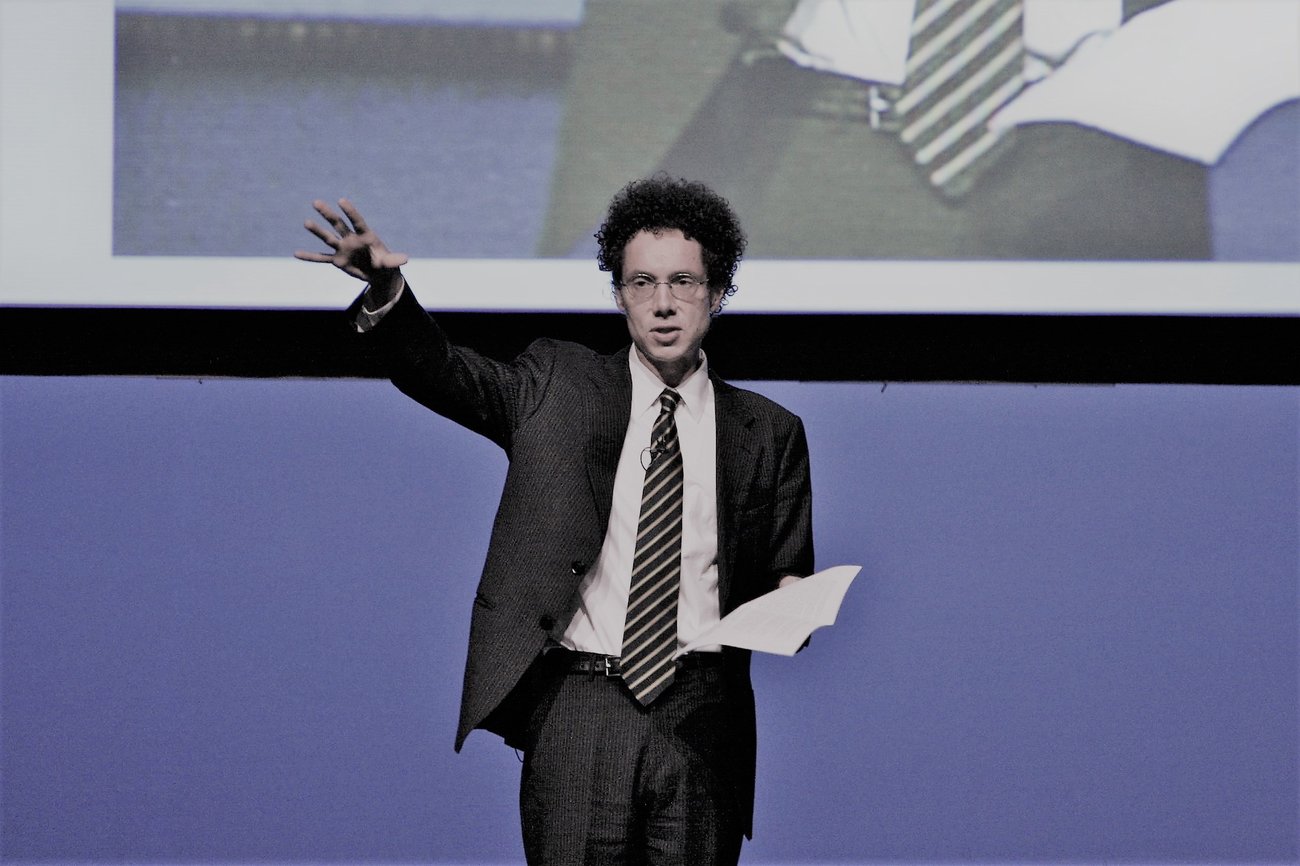Malcolm Gladwell thinks the past was more disruptive than the present (and other things we learned from chatting)

We are not living in the most disruptive time ever. Touchscreens are not necessarily an improvement in terms of technological development. Too much tech is being driven by fads.
Controversial opinions, no? The kind of stuff you’d probably dismiss based on how absolutely ridiculous it all sounds, yes?
And let’s just be honest with ourselves: you’d probably dismiss whoever was espousing such Luddite-esque views too as a crank and someone not to be taken seriously.
But the person who holds those views is none other than Malcolm Gladwell. Makes you change your tune a bit, huh?
The Blink and Outliers author (among other books, all of which as New York Times bestsellers), The New Yorker staff writer, speaker and journalist usually piques the interest a lot of people when he offers his views. When he talks, people listen.
And Gladwell believes the current digital era and age of VR, AR, nascent AI, and interactive technologies isn’t as disruptive as the times were when his parents were growing up, when entirely new industries were being created, new developments like vaccines were quickly going into mass use, things such as penicillin were being discovered, and there was a real impetus for innovation to survive. “There are those that think we live in this incredibly disruptive time,” he says. “I just don’t believe that.”
He’s also not entirely convinced that touchscreen technology is a significant improvement from the “old days” of pushing buttons on a phone or computer. “It doesn’t seem to me a touchscreen is a superior interface for products. It strikes me as a fad.”
That touches on something Gladwell believes is a serious issue – that many innovations are a response to fads rather than truly new things. “Technological development is dictated a lot more by fads and fashion than we’d like to think,” he says. “Technology development isn’t linear.”
An example Gladwell points to is McDonald’s ceasing to use beef tallow to fry its fries in after pressure from health campaigners and replacing it with vegetable oil. “I’m mystified by their evidence [for continuing to use vegetable oil,” Gladwell says. “There’s really no evidence for continuing this second-rate method. But McDonald’s as a corporation doesn’t seem to move too quickly.”
Episode 9 of Revisionist History is out! In which I take aim at the Golden Arches. McDonalds: You broke my heart. https://t.co/AWAMlWzybZ
— Malcolm Gladwell (@Gladwell) August 10, 2017
As anyone who has read his work or listened to his podcasts can attest, being able to move quickly – being nimble – is something Gladwell thinks is key for innovation. And that, he says, is an advantage small countries like New Zealand have.
“I wonder whether smallness is an overstated obstacle,” he says, pointing to the examples of the Netherlands being the world’s second-largest food exporter by value despite having a population of just 17 million people, or Israel being a world leader in cybersecurity with a population of about 8.5 million people.
New Zealand, Gladwell says, can be just as successful as the Dutch and the Israelis if there’s enough drive to do so. “What it requires is a very focused infrastructure and a few innovators,” he says. “What is more important is whether there is interest in a particular area and the wherewithal. Small countries are nimbler.”
But being the first to do something isn’t always the best either, Gladwell believes. The second or third innovator to take an idea usually can be more successful if they are able to refine and perfect the ideas of the first, he explains – and learn from the failures.
A current example, according to Gladwell: electric vehicles. “Larger automakers like BMW will learn from Tesla,” he says. “I don’t see how Tesla survives. Someone’s going to make a lot of money off electric cars. But I seriously doubt it’s going to be Tesla.”
Controversial opinions? Perhaps. And Gladwell isn’t done. There are also his views on television commercials. “I am a huge fan of advertising,” he says. “That you can tell a whole story in 30 seconds or a minute is extraordinary to me. I’m awed. Creativity under the condition of profound constraints is always more impressive than creativity without boundaries.”
Ironically, it’s the subject of boundaries – or lack thereof – that is perhaps Gladwell’s least controversial opinion in our talk, and relate to what it takes to not just innovate, but simply get a job, today. “The skills needed today are much more diverse than the 20th century.” In other words, fewer boundaries.
Gladwell is coming to New Zealand and Australia to for a seminar series called The Future: Disrupted & Reimagined. He’ll be speaking in Auckland on Thursday, December 7. If nothing else, at least one thing seems pretty certain: it’ll likely be full of more controversial (or thought-provoking, depending on your point of view) opinions that might otherwise be dismissed if they were said by anyone other than Malcolm Gladwell.




